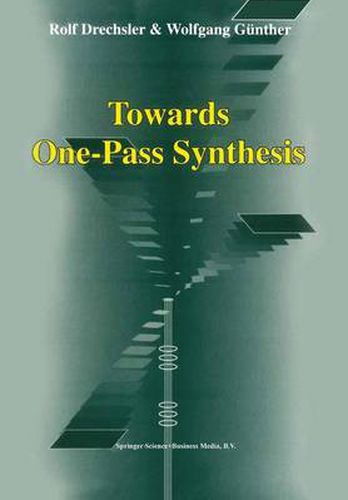Readings Newsletter
Become a Readings Member to make your shopping experience even easier.
Sign in or sign up for free!
You’re not far away from qualifying for FREE standard shipping within Australia
You’ve qualified for FREE standard shipping within Australia
The cart is loading…






The design process of digital circuits is often carried out in individual steps, like logic synthesis, mapping, and routing. Since originally the complete process was too complex, it has been split up in several - more or less independent - phases. In the last 40 years powerful algorithms have been developed to find optimal solutions for each of these steps. However, the interaction of these different algorithms has not been considered for a long time. This leads to quality loss e.g. in cases where highly optimized netlists fit badly onto the target architecture. Since the resulting circuits are often far from being optimal and insufficient regarding the optimization criteria, like area and delay, several iterations of the complete design process have to be carried out to get high quality results. This is a very time consuming and costly process. For this reason, some years ago the idea of one-pass synthesis came up. There were two main approaches how to guarantee that a design got
first time right : Combining levels that were split before, e.g. to use layout information already during the logic synthesis phase; Restricting the optimization in one level such that it better fits to the next one. So far, several approaches in these two directions have been presented and new techniques are under development. In Towards One-Pass Synthesis we describe the new paradigm that is used in one-pass synthesis and present examples for the two techniques above. Theoretical and practical aspects are discussed and minimization algorithms are given. This will help people working with synthesis tools and circuit design in general (in industry and academia) to keep informed about recent developments and new trends in this area.
$9.00 standard shipping within Australia
FREE standard shipping within Australia for orders over $100.00
Express & International shipping calculated at checkout
The design process of digital circuits is often carried out in individual steps, like logic synthesis, mapping, and routing. Since originally the complete process was too complex, it has been split up in several - more or less independent - phases. In the last 40 years powerful algorithms have been developed to find optimal solutions for each of these steps. However, the interaction of these different algorithms has not been considered for a long time. This leads to quality loss e.g. in cases where highly optimized netlists fit badly onto the target architecture. Since the resulting circuits are often far from being optimal and insufficient regarding the optimization criteria, like area and delay, several iterations of the complete design process have to be carried out to get high quality results. This is a very time consuming and costly process. For this reason, some years ago the idea of one-pass synthesis came up. There were two main approaches how to guarantee that a design got
first time right : Combining levels that were split before, e.g. to use layout information already during the logic synthesis phase; Restricting the optimization in one level such that it better fits to the next one. So far, several approaches in these two directions have been presented and new techniques are under development. In Towards One-Pass Synthesis we describe the new paradigm that is used in one-pass synthesis and present examples for the two techniques above. Theoretical and practical aspects are discussed and minimization algorithms are given. This will help people working with synthesis tools and circuit design in general (in industry and academia) to keep informed about recent developments and new trends in this area.